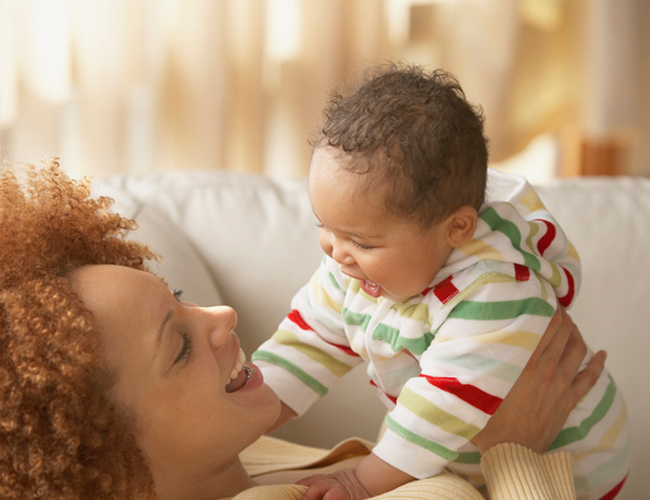Why baby talk is out, and ‘parentese’ is in
Using mispronunciations and sounds could mean trouble for your child’s language skills.
Using nonsense baby talk with your “toot wittle bubsy-wubsy” may seem cute but can slow their language development, warn experts – but do use ‘parentese’.
What’s the difference?
“So whooo’s maama’s boootiful baybee?” If you use high-pitched, sing-song language with your little one, simplifying real words, stretching the vowels and exaggerating your facial expression to make the sounds and meaning clearer, you’re not alone.
Parents in every culture and every language use this ‘parentese’ – even deaf parents using sign language, exaggerate their facial expressions and hand movements, reports Katherine White, professor of developmental psychology at the Lab for Infant Development and Language at the University of Waterloo in Canada.
When you use baby talk, on the other hand, you change real words into words that are essentially meaningless – “wuv” for love, perhaps, “num-nums” for food.
The pros of parentese
“Your baby’s first three years are a critical period for speech and language development, as this is when the brain is best able to absorb language,” says Cape Town speech and language therapist Carianne Vermeulen. “One-on-one interaction where parentese is spoken impacts powerfully on language acquisition and brain development.”
Parentese encourages babies to pay attention to speech, to engage, and to learn to discriminate between different speech sounds, detect boundaries between words, and learn basic grammar and the sounds of their language, she says.
“Never use baby talk,” Vermeulen warns, “it can delay speech and language development and teach children the incorrect way of speaking.” If they grow up hearing and saying “wuv” for instance, they may not recognise the word “love” when others use it, leading to miscommunication. What’s more, if they hear enough words with w’s in them where there should be l’s, they may always pronounce words like that.
Key is to keep talking to your child in the parentese that comes naturally, says Vermeulen. As your child develops, use simple, correct language that’s age appropriate, repeating words they mispronounce and saying them correctly, emphasising the sound they’re battling with so in time they get it right.
Why you should keep talking
It’s not just quality of talk that’s important, it’s quantity, says Vermeulen. “Research shows the more words babies and children hear, the better their vocabulary and academic performance. Leaving babies with a TV or radio is not the same – they learn new language when someone talks to them face-to-face.”
She quotes studies at the Universities of Connecticut and Washington, where babies whose parents used parentese learned more than twice as many words a year later than those whose parents didn’t speak to them this way often.



